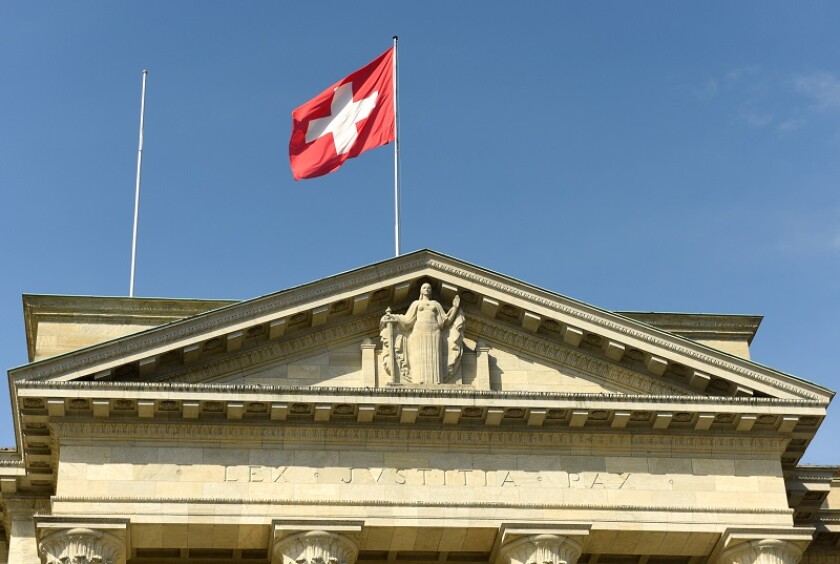The worst economic disaster since the great depression of 1929 took American and European banks by storm in 2008. The US, EU and Russia, among others, had to step in to save some of their banks from bankruptcy. Even certain German banks, symbols of the country's strength and prosperity, were on the verge of collapsing. Against this backdrop, the purpose of this briefing is to provide a high-level summary of the mechanisms in place to cope with the bankruptcy of a foreign bank in Switzerland.
The Swiss Financial Market Supervisory Authority (Finma) is the competent authority to deal with the bankruptcy of foreign banks. At the request of the foreign bankruptcy administrator or a bankruptcy estate's creditor, Finma must first recognise the foreign insolvency decree, as the foreign bankruptcy proceedings do not automatically extend to, nor deploy any immediate effects in Switzerland.
According to the provisions of the Swiss Private International Law Act (PILA), a foreign insolvency decree will be recognised if (a) the insolvency order is enforceable in the state where it was entered; (b) there are no grounds for refusal, such as that the recognition would be against Swiss public policy, the decision was taken in violation of the proceeding rights of one party and the matter is already in front of a Swiss court or is already a res judicata; and, (c) reciprocity is granted in the state where the decree was entered.
If these requirements are met, Finma orders the opening of so-called ancillary insolvency proceedings. Such proceedings allow the realisation of the bank's assets located in Switzerland, and primarily aim at prioritising creditors presenting a close link to Switzerland such as those who are domiciled in that jurisdiction. Finma would usually appoint a liquidator, unless it decided to carry out the liquidation itself. It also has the power to recognise injunctions or insolvency measures pronounced abroad in connection with the bank's bankruptcy.
However, according to the provisions of the Swiss Banking Act (BA), Finma may waive the requirement of ancillary bankruptcy proceedings in Switzerland, provided that foreign bankruptcy proceedings (i) treat collateralised and privileged claims of creditors domiciled in Switzerland equivalently to how they would be treated under the relevant Swiss law provisions, and, (ii) adequately take into account other claims of creditors domiciled in Switzerland.
As regards the distribution of assets in ancillary bankruptcy proceedings, creditors may request their claim in principal and interest up to the date of the opening of the liquidation proceedings, as well as enforcement costs. All claims made against the bank and filed in the proceedings for debt enforcement purposes in Switzerland will be converted into Swiss francs, at the exchange rate that is applicable on the opening day of the bankruptcy proceedings.
If the requirements set out are met, Finma will make the assets located in Switzerland available to the foreign liquidator of the bankruptcy estate. In that context, the liquidator will be allowed to act in Switzerland against third parties, for the purposes of, for example, recovering an outstanding claim, claiming assets located in Switzerland or enforcing a court decision rendered in favour of the bank. From the perspective of the foreign liquidator, Finma's approval is important, to the extent that unauthorised actions undertaken on Swiss soil in the interests of the foreign bankruptcy proceedings could potentially be deemed prohibited actions on behalf of a foreign state under article 271 of the Swiss criminal code (blocking statutes).
In past years, the recognition process in international bankruptcies has been the subject of growing criticism. It is said to be slow and expensive. More specifically, reciprocity as one of the conditions of the insolvency's recognition is deemed inefficient, burdensome and expensive.
On May 24 2017, the Swiss Federal Council published a bill regarding the modernisation of the rules governing international bankruptcies. In a nutshell, assuming that the bill passes, the reciprocity requirement will be abandoned. Moreover, it will become possible to waive the ancillary bankruptcy, absent any preferred creditor in Switzerland. As far as the bankruptcy of foreign banks is concerned, the above bill focuses on improving the coordination between the ancillary and the branch bankruptcy proceedings, and preventing issues of concurring claims arising from them, while preserving the rights of the creditors of the branch. To that end, the possibility of opening bankruptcy proceedings at the location of the branch will be limited in time, specifically, up to the moment when the schedule of claims becomes definitive.
International bankruptcy has become a topical subject. Understanding and anticipating the recognition procedure applicable in Switzerland is key, since the liquidator or creditors may face certain legal hurdles and risks, such as the blocking of statutes in case of a breach. Moreover, the planned legislative improvements will have to be monitored closely as they could have an impact on the future on international bankruptcies in the banking sector.

|
Andrew Michael Garbarski |
Bär & Karrer
12, quai de la Poste
CH-1211 Genève 11
Switzerland
T: +41 58 261 57 00
F: +41 58 261 57 01

